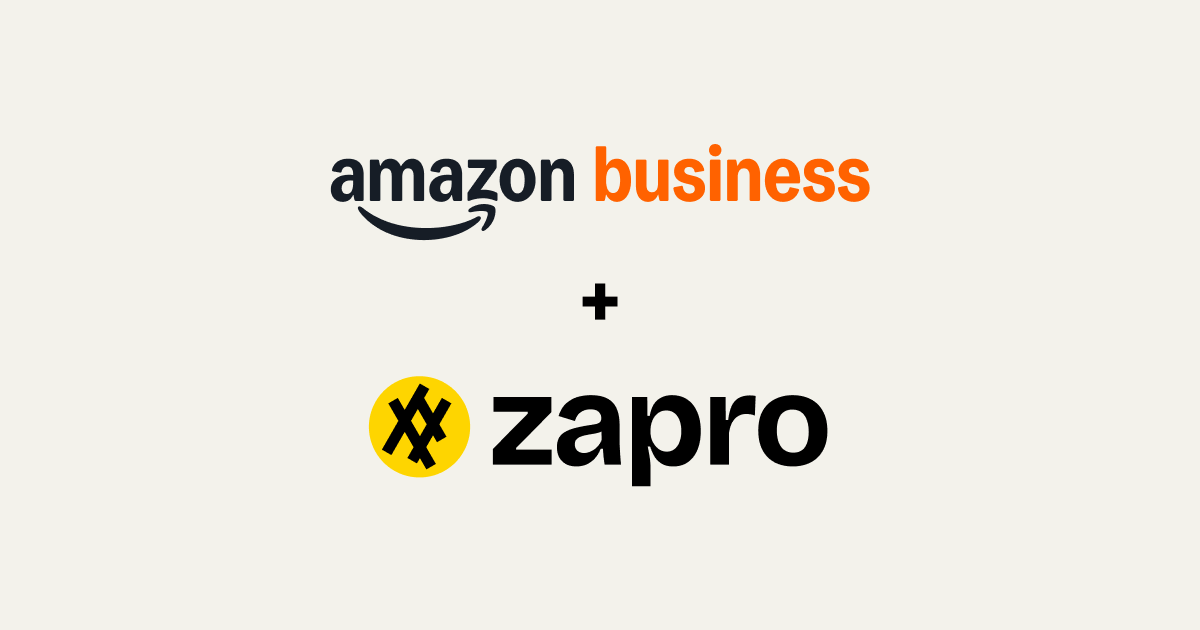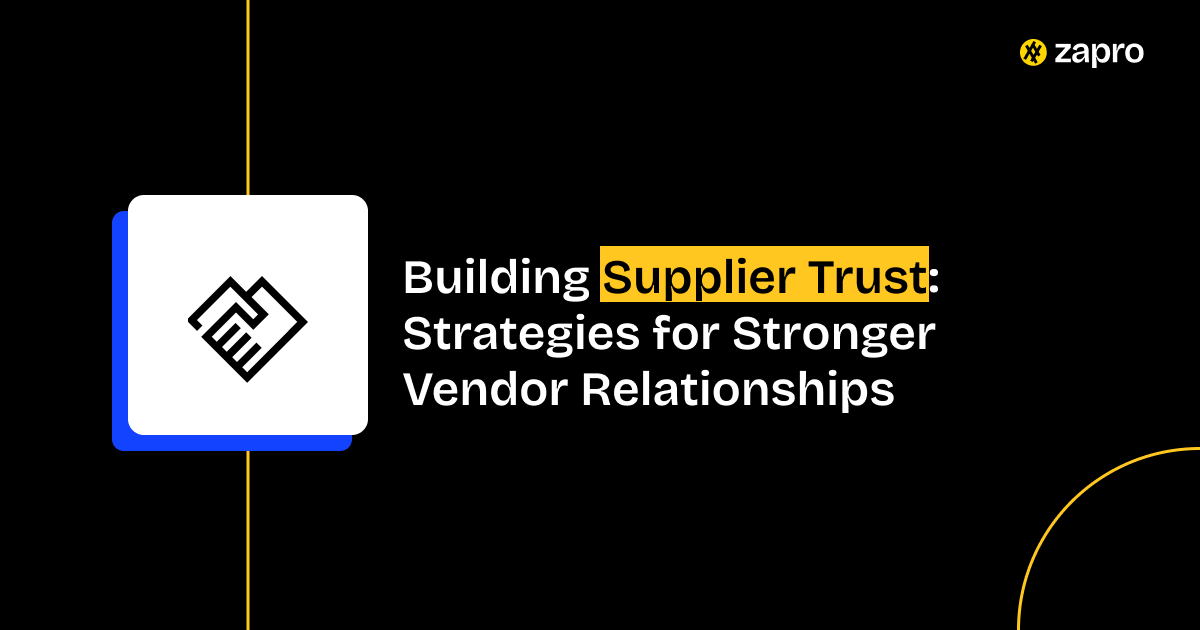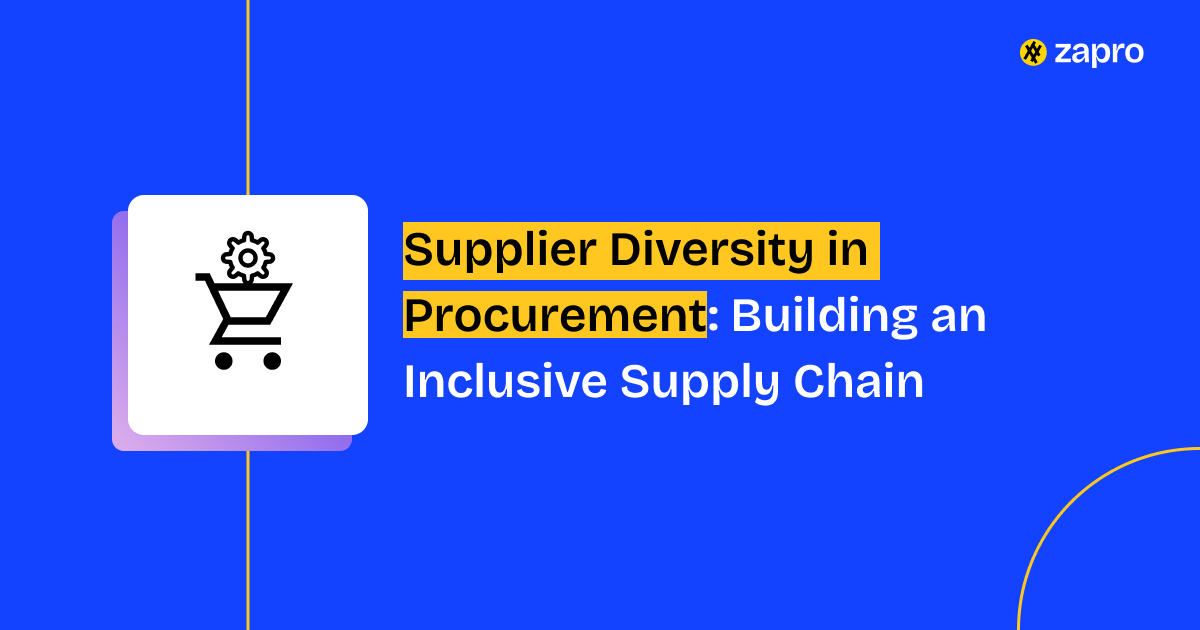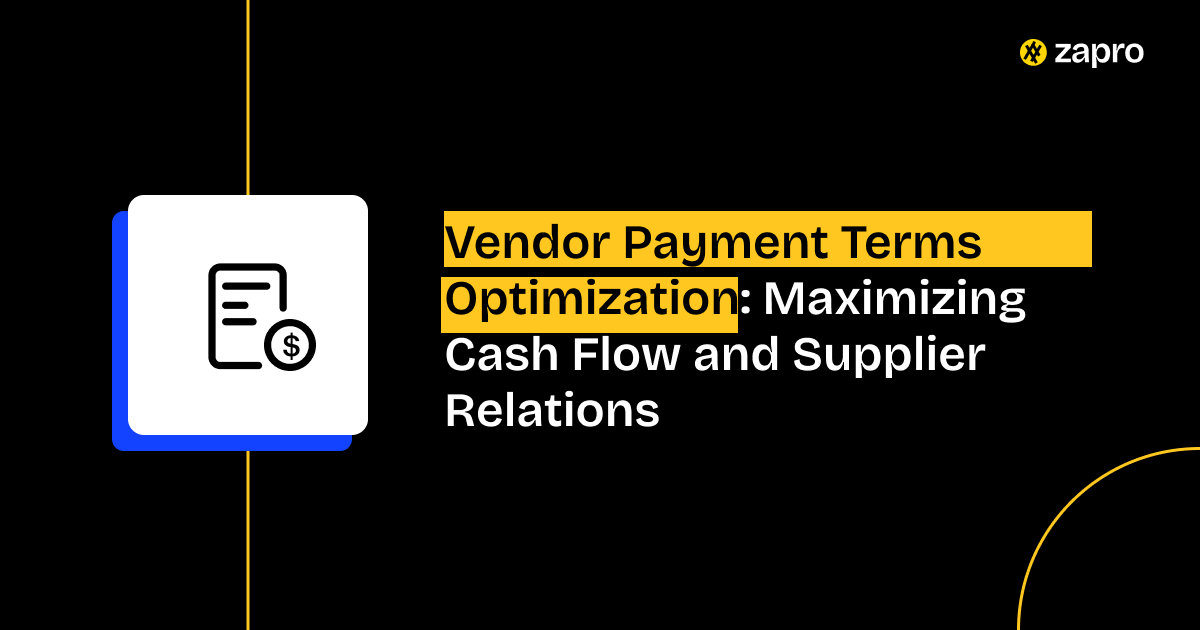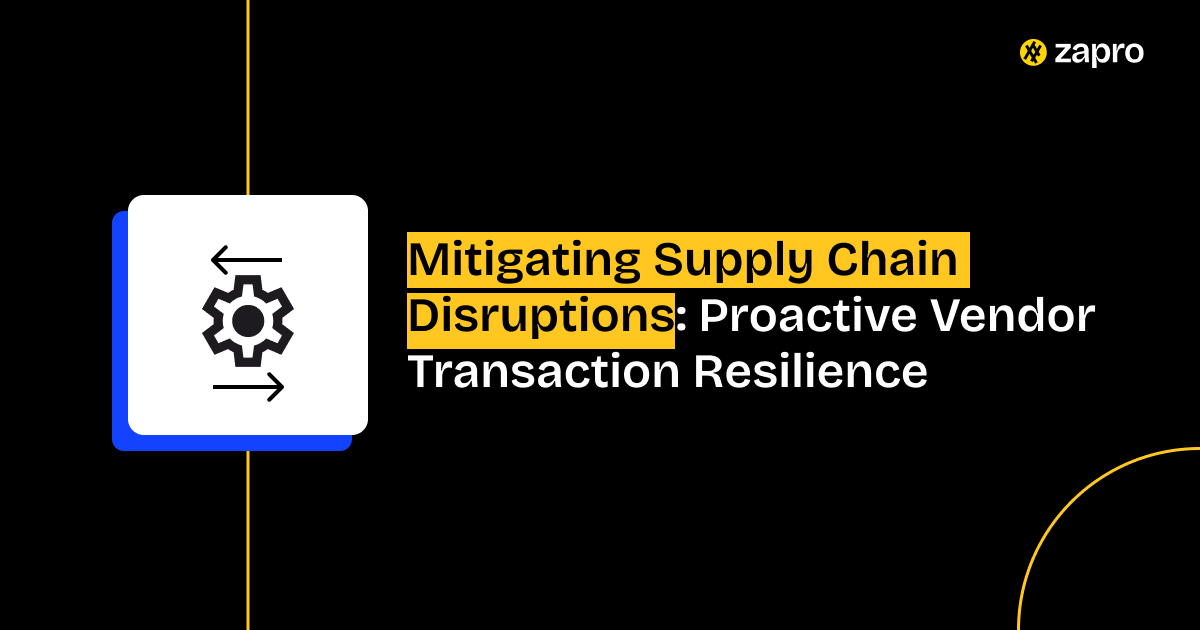B2B commerce operates in a complex environment where suppliers are commonly seen as mere invoice names that deliver products or services at minimum cost. Your business will fail to reach its full potential when you maintain this transactional mindset toward suppliers. The companies that will achieve success in 2025 have evolved their approach by treating essential suppliers as members of their internal team.
The key to success lies in building supplier trust .Building enduring supplier partnerships requires more than contract signing because organizations need to create a foundation of mutual trust through transparent actions and shared success goals. This guide explores the actionable strategies your organization can use to stop chasing low prices and start building high-value, high-trust vendor relationship building that drives real growth.
Why Supplier Trust is Your Most Valuable Asset
The most successful team you have ever worked with consisted of members who trusted each other more than having the most skilled team members. Your supply chain operates at its best when it has high levels of supplier trust because this leads to reduced friction and faster operations. Your essential vendors evolve from service providers into dedicated partners through the establishment of trust.
This trust provides a competitive edge that simply can’t be bought. It allows for:
- Priority Service: Your trusted vendors will give your orders top priority during times of limited capacity.
- Flexibility: They adapt their business terms and delivery schedules and payment conditions when you encounter operational challenges.
- Innovation: They provide you with access to new concepts and technological solutions because they believe you will not seek alternative vendors right away.

More than three-quarters (77%) of companies said they are investing in deeper and more collaborative supplier relationships to improve resilience and agility.
– Gartner’s “Future of Supply Chain: Crisis Shapes the Profession” report
The Cost of Low Trust: Risks and Inefficiencies
The absence of supplier trust creates ongoing resource depletion and represents a major risk factor for the organization.
When trust is low, you are forced to:
- Over-Monitor and Audit: The process of excessive monitoring and auditing wastes time and money while creating tension between parties.
- Face Misunderstandings: Every interaction becomes suspect in nature because of distrust which results in regular disagreements about project scope and delivery and quality standards.
- Suffer Slow Responses: The vendors only fulfill their contractual duties which results in project delays when unexpected problems occur.
- Experience Reduced Quality: A transactional relationship between parties leads suppliers to focus only on basic requirements which eliminates their drive to deliver exceptional work.
- Risk High Supplier Turnover: The high rate of supplier turnover occurs because essential vendors choose to work with partners who demonstrate better respect and transparency thus requiring your organization to frequently bring in inexperienced new providers.
In short, low trust makes your supply chain rigid, expensive, and fragile.
Pillars of Trust: Core Principles for Vendor Relationships
An organization needs to establish specific behaviours which will become the core foundation of supplier trust development. The fundamental elements of successful long-term supplier partnerships exist as essential principles which go beyond basic courtesy.
1. Open Communication: Beyond Contractual Obligations
Free information exchange creates an environment where trust can develop between parties beyond the point of contractual violations. The practice of open communication requires organizations to move beyond formal business exchanges into authentic human-based dialogues.
- Share the “Why”: The “Why” behind your requirements should be communicated to vendors because it helps them understand their role in delivering value to your end customers and product success. The provided context enables them to take full responsibility for their work.
- Provide Timely Feedback (Good and Bad): Your team should deliver prompt feedback about all aspects of performance including positive achievements and negative issues. Your team should handle small problems right away to prevent them from growing into major issues while also recognizing and celebrating their achievements through public acknowledgment.
- Proactive Information Sharing: When you notice upcoming budget reductions or product direction changes you should disclose this information to your suppliers at the beginning. Trust suffers when unexpected events occur.
2. Transparency and Data Sharing: Building Mutual Understanding
The implementation of this pillar proves challenging because it requires sharing sensitive information but it is essential for supplier collaboration best practices. Transparency and data sharing must be reciprocal and secure.
- Share Demand Forecasts: Businesses should provide detailed and extended demand forecasts to essential suppliers because this practice enables them to plan their operations effectively. Your supply chain stability improves when suppliers receive accurate long-term demand forecasts because they can make strategic investments in personnel and equipment and materials which results in better pricing terms.
- Share Performance Metrics: The evaluation process of suppliers requires open disclosure of performance metrics to all parties involved. The evaluation process of suppliers requires open disclosure of quality metrics and on-time delivery performance data. The process of finding solutions becomes simpler when both parties examine identical data points.
- Secure Platforms: The implementation of secure collaborative platforms stands as an essential requirement for data protection. The protection of shared data combined with accurate and current information exchange creates trust between vendors and suppliers. The information exchange platform Zapro exists to handle secure centralized data management.
3. Fairness and Equity: Ensuring Balanced Partnerships
Ethical vendor management is not just about following the law; it’s about acting fairly, even when you have the power advantage.
- Reasonable Terms: Your payment terms should be fair and reliable. Using your market power to constantly squeeze margins or impose draconian payment terms will breed deep resentment and encourage vendors to leave as soon as a better opportunity arises.
- Respect Intellectual Property (IP): If a vendor develops a unique process or innovation for you, ensure the agreement is equitable regarding ownership and compensation.
- Avoid Over-Reliance: While you want a strong partnership, avoid becoming the only client for a supplier, which creates instability for both parties. Encourage their growth and diversification.
Start Building Stronger Supplier Relationships Today

Actionable Strategies for Cultivating Trust
Trust development requires multiple positive interactions between parties rather than a single meeting.
Establishing Clear Expectations and KPIs Together
You can’t evaluate a supplier fairly if the goals weren’t defined collaboratively.
- Joint Goal Setting: Sit down with your critical long-term supplier partnerships and jointly define the Key Performance Indicators (KPIs) and Service Level Agreements (SLAs). The implementation of KPIs with both parties in mind will help them achieve waste reduction which benefits their production costs and environmental sustainability.
- Define Success: The definition of success needs to extend past basic delivery times because it does not show complete success; therefore, remember to move beyond success.
- Document and Centralize: The supplier needs to understand the complete business outcome to deliver better service to your organization. Therefore, document everything and make it available for everyone.
Proactive Problem-Solving and Conflict Resolution
A real business partner will appear during times of trouble instead of only showing up during successful operations.
- Identify Root Causes Together: The first step in resolving mistakes should be to exclude blame from the discussion process. The discussion should concentrate on identifying the fundamental reason behind the problem while developing a mutual strategy to stop its recurrence.
- Fair Consequence/Reward System: The supplier needs to understand that penalty calculations follow established procedures which both parties agreed to before any conflict occurs. The supplier should receive recognition for their outstanding performance when they successfully recover from major problems. The behavior which you want to see will become more prevalent because of this approach.
- Dedicated Resolution Channel: A defined conflict resolution process should exist to handle disputes between suppliers and customers through established decision-making protocols that protect ongoing business relationships and supplier trust.
Investing in Joint Innovation and Growth Initiatives
The pinnacle of supplier collaboration best practices is investing in shared futures.
- Joint R&D: Fund pilot programs or joint research and development initiatives with key vendors. This signifies that you view their capabilities as critical to your future and are willing to invest your resources alongside theirs.
- Shared Training: Offer to share your internal training modules, safety protocols, or even leadership coaching with their team. This elevates their standard of service, increases your mutual compatibility, and shows commitment.
- Pilot New Technology: Before deploying a major change (like a new ERP or an automated tracking system), work with a trusted supplier to pilot the integration. This tests the technology in a low-risk environment and strengthens your vendor relationship building through shared difficulty.
Recognizing and Rewarding Supplier Excellence
A simple thank you goes a long way, but meaningful recognition goes further.
- Preferred Status: Grant your most trusted partners “Preferred Supplier” status which allows them to view new business opportunities first and receive automatic shortlist placement.
- Public Recognition: Your company should publicly acknowledge their achievements through official communications and website announcements and annual report publications.
- Process Efficiency: Reward trust by simplifying their process. Highly trusted vendors may bypass certain time-consuming checks or audits, relying instead on spot checks. This saves them time and money—a powerful reward.
Leveraging Technology to Enhance Trusted Relationships
The present fast-paced business environment demands that supplier trust requires technological support to maintain stability. Digital platforms function as the fundamental base for building modern ethical vendor management systems.
Centralized Communication Platforms for Real-time Interaction
Email chains are where data gets lost and trust goes to die.
- Single Source of Communication: The platform enables users can access all purchase and project-related discussions and files and decisions through a unified communication system. The system maintains a unified information base which all participants can access.
- Real-time Interaction: The system enables users to solve problems instantly through in-app messaging and chat rooms which stops small issues from becoming major problems.
- Audit Trail: The system maintains an automatic log of all interactions which produces an objective record for future reference to prevent disputes about previous communications.
Secure Data Sharing Portals and Document Management
Transparency and data sharing are impossible without security.
- Role-Based Access: The platform requires a system which grants suppliers access to their performance data and contract information through role-based permissions while blocking access to global data.
- Centralized Repository: The platform enables instant access to the most recent contract version for all parties after signing the agreement. The system prevents users from working with different versions of documents which could lead to conflicting information.
Performance Tracking and Feedback Mechanisms
Performance tracking systems should function as collaborative tools instead of being used as instruments of control.
- Joint Dashboards: The Supplier Engagement Index measures the frequency at which suppliers present process enhancements and innovative solutions and cost reduction opportunities. The level of supplier trust directly correlates with their active involvement in the partnership.
- Automated Feedback Loops: The process of conducting post-project interviews (feedback surveys) with structured questions helps organizations obtain authentic feedback about their communication practices and transparency levels and fairness during project execution.
Measuring and Sustaining Supplier Trust Over Time
Trust is an intangible asset, but its results are measurable. You need formal methods to gauge the health of your long-term supplier partnerships.
Trust Surveys and Feedback Loops
The organization should conduct vendor surveys in the same way it surveys its employee.
- Relationship Net Promoter Score (rNPS): The rNPS survey asks suppliers to rate their willingness to endorse your company for business partnerships. The level of operational or ethical problems within your organization becomes apparent when supplier scores remain low.
- Supplier Engagement Index: The Supplier Engagement Index tracks the frequency at which suppliers present process enhancement ideas and innovative solutions and cost reduction opportunities. The level of supplier trust directly correlates with their active involvement in business activities.
- Post-Mortem Interviews: The evaluation process includes post-project interviews which use structured methods to obtain truthful feedback about communication practices and process transparency and fairness during the entire project duration.
The Role of Relationship Managers
A partnership needs someone to protect its trust. Your most important vendors should receive continuous support through the appointment of specific Relationship Managers who will handle their partnership needs.
- Dedicated Point of Contact (POC): The contract owner role extends beyond administrative duties because this person serves as the relationship champion who protects the vendor from internal problems such as delayed payments and departmental barriers.
- Periodic Business Reviews: The business reviews should occur regularly at least twice a year to assess strategic alignment and future challenges and develop joint growth strategies instead of focusing on transactional activities.
Conclusion: The ROI of Trust in Vendor Management
Supplier trust functions as a strategic business advantage which organizations should leverage for competitive success.
An organization will transition from transactional buying to strategic partnership through ethical vendor management and transparent practices and supplier collaboration best practices. Your supplier network will achieve its complete potential when you implement these strategies which will bring you innovation and business resilience and superior operational performance.
The ROI of trust in vendor management is seen as stabilizing pricing, expediting product development, decreasing compliance risks and enhancing supply chain flexibility during market disruptions.
The organization requires a platform investment to establish vendor relationship building because current tools and processes create ongoing difficulties in this area. Business success depends on trusted relationships which require tools that enable secure data sharing and centralized communication systems.

Turn Supplier Trust Into Your Competitive Edge
Get started with Zapro. Build supplier relationships that last.
Don’t miss our weekly updates
We’ll email you 1-3 times per week—and never share your information.
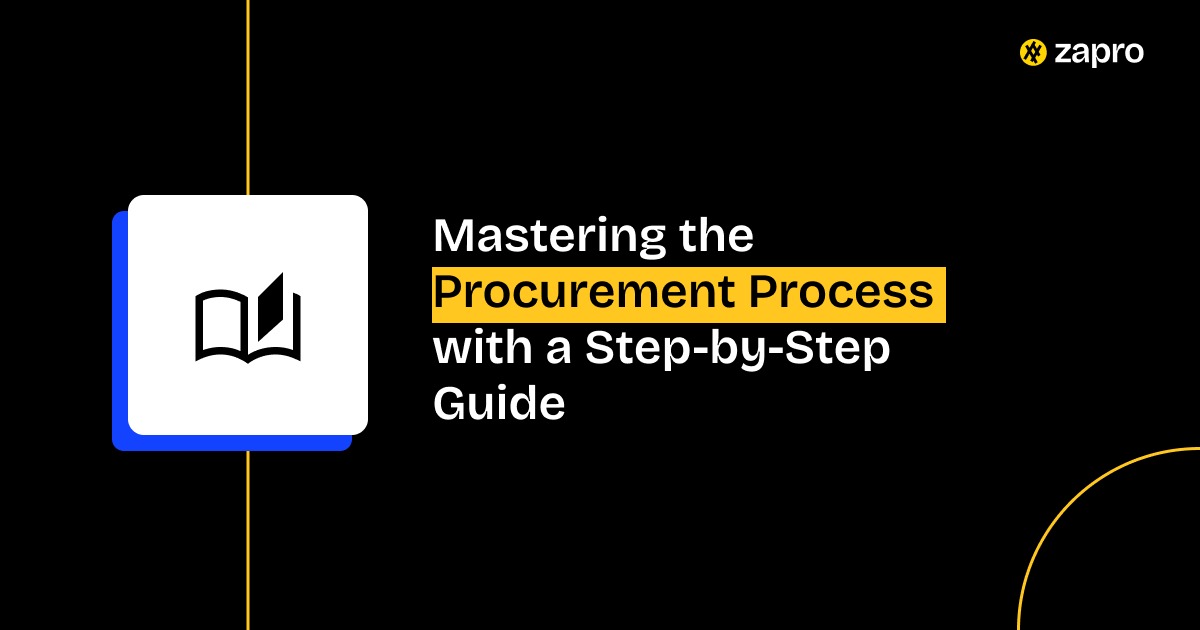
 Healthcare
Healthcare Financial Services
Financial Services Technology
Technology Venture Capitalist
Venture Capitalist Chief Procurement Officer
Chief Procurement Officer Chief Financial Officer
Chief Financial Officer